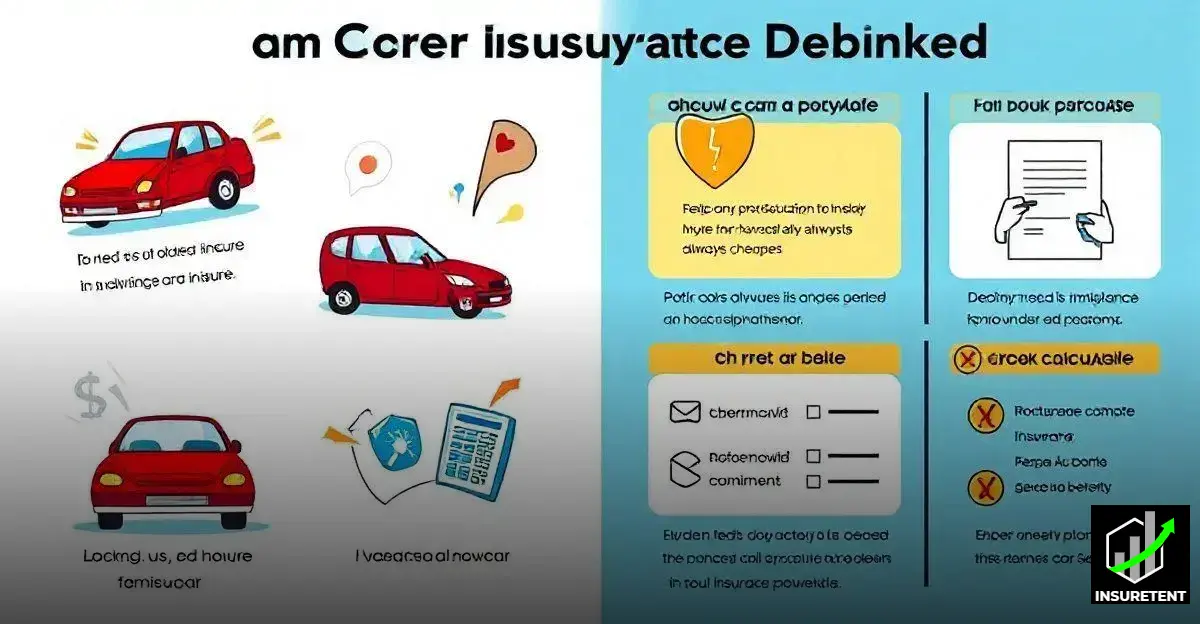Car insurance is crucial for safeguarding both your vehicle and your financial well-being. By understanding the key aspects of coverage, you can make informed choices that not only protect you on the road but also help you avoid unnecessary expenses. Having the right insurance ensures peace of mind and financial security in the event of an accident or unexpected damage.
Understanding Car Insurance Basics
Understanding the basics of car insurance is essential for every driver. Car insurance provides financial protection in case of an accident or vehicle damage, ensuring you aren’t left to cover repair costs and medical expenses on your own.
There are various types of coverage, each serving a distinct purpose. Liability coverage helps pay for damages you cause to others, while collision coverage covers your vehicle’s repair costs after an accident. Comprehensive coverage protects against non-collision incidents, such as theft or natural disasters, and uninsured motorist protection safeguards you if the other party lacks insurance.
It’s crucial to review your policy limits and fully understand what is covered. This knowledge can help you save money and reduce stress in the long run.
Types of Car Insurance Coverage

There are different types of car insurance coverage that cater to various needs. Understanding these types can help drivers choose the best policy for their situation.
Liability insurance is mandatory in many places and covers damages to other people’s property or injuries to others in an accident you cause.
Collision coverage helps pay for your vehicle’s repairs after an accident, regardless of who is at fault.
Then there’s comprehensive insurance, which covers non-collision incidents like theft, vandalism, or natural disasters.
Personal Injury Protection (PIP) is also important—it pays for your medical expenses regardless of who caused the accident.
Lastly, uninsured/underinsured motorist coverage protects you if you’re in an accident with someone who doesn’t have enough insurance.
Knowing these types of coverage allows you to tailor your insurance policy effectively.
Factors Affecting Car Insurance Premiums
Several factors influence car insurance premiums, and understanding them can help you save money. One of the primary factors is your driving history. Drivers with a clean record generally pay lower premiums than those with past accidents or traffic violations. Age and gender also impact rates, with younger drivers often facing higher costs due to their lack of experience.
Location is another crucial element; areas with higher crime rates or heavy traffic congestion can result in increased premiums. Additionally, the type of vehicle you drive matters—cars that are expensive to repair or have a higher risk of theft typically cost more to insure. Lastly, your credit score can play a significant role, as a higher score often translates to lower rates.
By understanding these factors, you can make informed decisions about your car insurance coverage and potentially reduce your premiums.
How to Choose the Right Car Insurance

Choosing the right car insurance can be challenging, but knowing key factors makes it easier. Start by assessing your coverage needs. Consider how much protection you require based on your vehicle’s value and your driving habits.
Compare different insurance providers; not all companies offer the same rates and coverage options. Look for customer reviews to gauge satisfaction levels and claim handling.
Additionally, check for discounts that may apply to you, such as safe driver or multi-policy discounts. Another essential step is reading the policy details. Ensure you understand what is covered and what is not.
Finally, don’t rush the decision; take your time to evaluate all options to find the best coverage for your needs.
Tips for Lowering Car Insurance Costs
Finding ways to lower car insurance costs is essential for many drivers. One effective method is to raise your deductible; this means you’ll pay more out of pocket in case of an accident, but your monthly premiums will be lower.
Another tip is to bundle your insurance policies. Many companies offer discounts if you purchase multiple types of insurance, such as home and auto, from them.
It’s also wise to shop around and compare different insurance providers. Rates can vary significantly, so look for lower premiums without sacrificing coverage.
Additionally, maintaining a good credit score can lead to better premiums. If you’re struggling with debt, consider implementing a Debt Management Plan to improve your financial standing and potentially lower your insurance costs.
Lastly, consider taking a defensive driving course; some insurers give discounts for completing such courses, showing your commitment to safe driving.
Common Car Insurance Myths Debunked

There are several common myths surrounding car insurance that can lead to confusion and poor decision-making.
One prevalent myth is that only expensive cars need insurance. In reality, every driver needs car insurance, regardless of the car’s value.
Another misconception is that your insurance follows the car, not the driver. In most cases, it is the driver’s policy that will be used in an accident, regardless of what vehicle they are driving.
Many people also believe that all insurance companies are the same. However, each company has different policies, rates, and customer service levels.
Additionally, some think that low premiums mean low coverage. In fact, various factors determine coverage levels.
Debunking these myths helps consumers make better-informed decisions about their car insurance needs.
The Importance of Comparing Insurance Quotes
Comparing insurance quotes is essential for finding the best deal on car insurance. It allows you to see the differences in coverage options and premium prices between various providers.
Start by gathering quotes from multiple companies. This can often be done online, making it quick and easy. When reviewing the quotes, pay close attention to what each policy includes; not all coverage is the same.
Look for discounts that certain providers offer, as these can significantly affect the cost. Additionally, understanding the reputation of the insurer for handling claims is vital. A cheaper policy might not be worth it if their customer service is poor.
By comparing quotes effectively, you can make an informed decision that could save you money while ensuring adequate coverage.
Navigating Claims and Coverage Issues

Navigating claims and coverage issues can be tricky for policyholders. When you need to file a claim, start by contacting your insurance provider as soon as possible.
Gather all relevant information, such as accident reports, photos, and witness statements. Document everything related to the incident to support your claim.
Understand your policy’s terms; knowing what is covered can help speed up the process.
If you encounter issues, don’t hesitate to ask your insurer for clarification. Sometimes, claims can be denied due to insufficient documentation, so ensure you deliver complete and accurate information from the start.
If problems persist, consider reaching out to a legal advisor who specializes in insurance claims to assist you further.
Renewing Your Car Insurance Policy
Renewing your car insurance policy is a crucial step in maintaining coverage. As your renewal date approaches, review your existing policy to see if it still meets your needs. Consider any changes in your driving habits, vehicle usage, or personal circumstances that might affect your coverage.
It’s also a good time to compare rates with other providers to ensure you’re getting the best deal available. Many insurers offer discounts for loyal customers, so be sure to ask about any savings you could qualify for.
Don’t forget to check for any changes in the terms and conditions of your policy. If you feel comfortable, you can even negotiate your rates or ask for better coverage options. Taking these steps ensures that your car insurance policy remains relevant and cost-effective.
Understanding Car Insurance
Car insurance is not just a legal requirement; it is a vital safety net for drivers. By understanding the different types of coverage, the factors that influence premiums, and the importance of comparing quotes, drivers can make informed choices that protect their interests.
By addressing common myths, knowing how to choose the right policy, and navigating claims effectively, you will empower yourself as an informed consumer in the car insurance landscape. Regularly reviewing your policy and keeping up-to-date with changes ensures that you maintain appropriate coverage at a competitive rate.
Ultimately, taking proactive steps in managing your car insurance not only provides peace of mind but also helps you save money in the long run.
